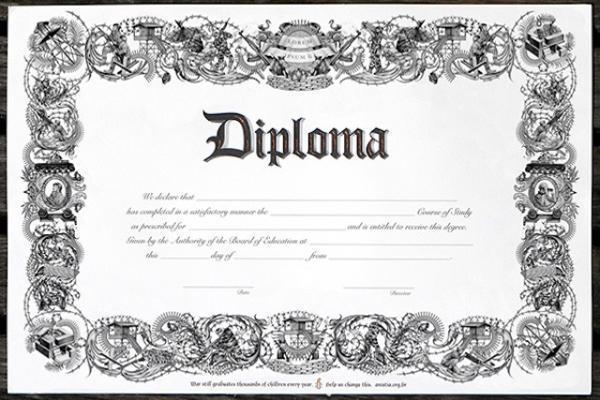What is the Difference between a Certificate, Diploma and Degree?


Certificates, Diplomas & Degrees: The Difference
|
Award Type |
Certificate |
Graduate Certificate |
Diploma |
Degree (associate, bachelor's master's, and doctorate) |
|
Institutions |
Vocational and technical schools; community colleges |
2- and 4-year institutions |
Vocational and technical schools; community colleges; hospitals |
2- and 4-year institutions |
|
Completion Time |
About 1 year |
About 1 year |
About 1 year |
2 years, 4 years, 2 years, 4-6 years |
|
Career Goals |
Technical and vocational fields; professional skill enhancement |
Professional skill enhancement or specialization |
Technical and vocational fields |
Professional fields requiring undergraduate or graduate degrees |
Certificates, diplomas, and degrees differ in the time it takes to earn each as well as the credits required in order to graduate. Each of these academic achievements is suitable for certain specific fields or career goals.
Diploma and certificate programs taken alone are similar to associate's degree programs. However, they take less time because general education courses are not required. A degree program differs from certificates and diploma programs in that it often requires the student to take general education courses to support a more rounded education. For instance, at many universities, those earning their bachelor's degree are required to take English, math, science, philosophy, and history.
Certificate Programs
A certificate is earned by a student after taking a series of courses on a particular subject. Students often earn certificates to get a step ahead in the professional field of their interest, and certificates may be offered in similar programs leading to degrees. For instance, there are certificates in business, literature and technical fields. In some technical programs, a certificate may be required.
There are also graduate certificates, often taken either alone or alongside a graduate degree program. In some programs, the student may use his or her electives to fulfill a certificate in order to make him or herself more desirable to a potential employer.
Diploma Programs
Diplomas are similar to certificates, and they're often awarded through community or technical schools. For instance, a diploma of nursing is offered as an alternative to an associate's degree or bachelor's degree. This diploma program is only offered at hospitals with specialty programs that provide training.
Degree Programs
An academic degree can be earned at many levels, including the associate's (two years); bachelor's (four years); master's (two years beyond a bachelor's degree); and doctoral, which is several years beyond a master's degree.
Earning a degree also opens up more potential doors to a student than a certificate or diploma. Many careers require that the applicant has earned at least a bachelor's degree; several career options require more than this.
